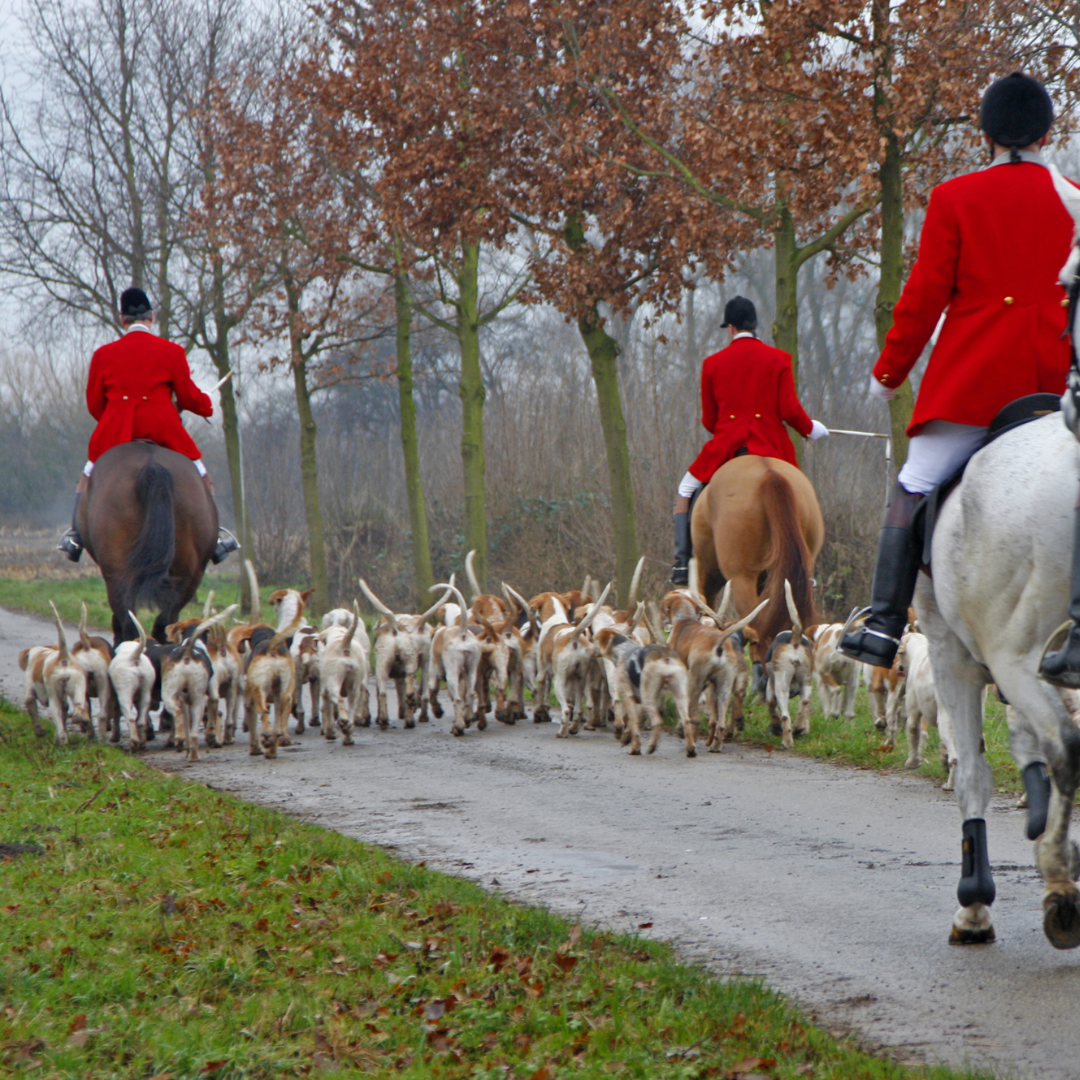Fox hunting in England

Fox hunting is a practice that has sparked debate for centuries in the United Kingdom, especially in England, where its origins date back to very ancient times. This activity was more than just a pastime for the aristocracy; it was deeply linked to pest control and the preservation of farmers' crops. However, its evolution has led to a partial ban that, even today, continues to divide opinions between defenders of tradition and animal rights activists.
Origin of Fox Hunting: Aristocratic Tradition
Fox hunting began in the mid-18th century in medieval and Renaissance England, when big game hunting was reserved exclusively for royalty. Mounted on horses, accompanied by packs of dogs and armed with lances, nobles went out in search of wild animals as a symbol of power and social status.
The first formal fox hunt was organised by the second Duke of Buckingham, a historical figure whose passion for hunting was, ironically, the cause of his death. In 1685, he succumbed to a cold contracted while participating in a hunt. Since then, fox hunting has become a sport of the nobility and the upper classes, who found in it an exclusive entertainment.

From Sport to Protection
Although fox hunting was seen as an elitist sport, its proponents argued that it also helped protect species and control pests. English farmers supported this argument, as they viewed foxes as a threat to their crops and livestock. Being nocturnal and wary animals, foxes often attacked under the cover of darkness, creating a need to keep their populations under control.
However, there were also critics who questioned the ethics of this practice. While hunters justified the activity as a necessity for the balance of the rural ecosystem, detractors saw fox hunting as a cruel and bloody tradition.
Prohibition in England
Despite its cultural roots, fox hunting with packs was banned in 2005 under the government of Labour Prime Minister Tony Blair. The law stipulated that no more than two dogs could be used for hunting, and that a shotgun had to be used. This decision generated great controversy, especially among hunters and country societies, who saw the ban as an attack on one of England's oldest traditions.
The so-called Countryside Alliance has become a powerful opposition force, uniting 268 hunting societies and half a million members. This coalition is organizing riots and protests, demanding the repeal of the law, although without success. However, an amendment to the law allowed fox hunts to continue to be organized in Wales and England, keeping the tradition alive under certain restrictions.
The Controversy Continues
Over the years, fox hunting has remained a hot topic. Battles between hunters and animals continue every year, especially during hunting holidays when foxes remain the target. While the former maintain that the practice is part of cultural heritage and an ecosystem management tool, the latter denounce the unnecessary suffering that this activity inflicts on animals.
In 2019, the issue was back in the headlines when Conservative politician and party leadership hopeful Jeremy Hunt expressed his support for legalising fox hunting in a Telegraph podcast , reigniting the debate. His comments sparked a wave of reactions both for and against, and highlighted the persistent division that exists around the issue. 
Fox hunting is undoubtedly an integral part of English history, deeply rooted in its culture and in the traditions of the upper classes. From its origins as an elitist sport to its ban in the 21st century, the practice has undergone multiple transformations, while remaining the subject of intense debate. The figure of Prince Charles, son of Queen Elizabeth II, who for years was a fervent defender of this tradition, symbolises the longevity of fox hunting in the highest spheres of British society.
As society moves forward and animal rights become more important, the future of fox hunting remains uncertain. What is clear is that, whatever the design, the issue will continue to be a source of controversy in British politics and culture.